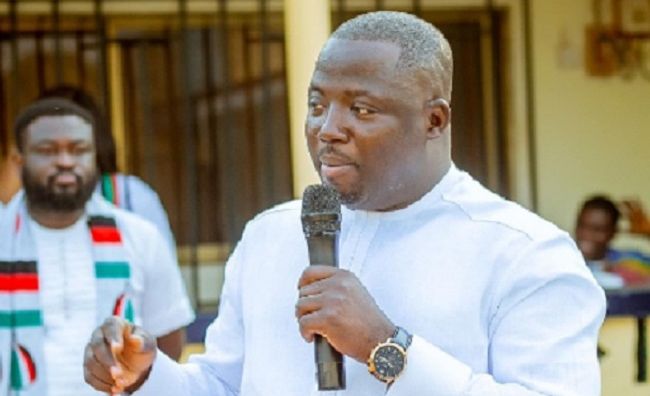The aftermath of Ghana’s recent elections has been marred by accusations of vandalism against supporters of the National Democratic Congress (NDC), the main opposition party. Mustapha Gbande, the NDC’s Deputy General Secretary, has stepped forward to defend these actions, asserting that the individuals involved were not engaging in wanton destruction but rather safeguarding state assets from being pilfered by outgoing government officials. Gbande’s defense paints a picture of vigilant citizens acting to prevent the misappropriation of public resources, countering the narrative of post-election lawlessness. His statements raise complex questions about the transition of power, the protection of public property, and the role of party supporters in upholding accountability.
Gbande, in an interview with Accra-based Citi FM, acknowledged the actions attributed to NDC supporters but reframed them as a form of civic duty. He argued that these individuals were driven by a desire to protect government property from being illegally appropriated, a practice he suggested has become rampant and accepted with impunity. He characterized the supporters’ actions as a necessary response to this perceived culture of corruption, portraying them as protectors of public assets rather than vandals. This defense reframes the narrative from one of post-election violence to one of citizen activism against perceived government misconduct.
Furthermore, Gbande emphasized the distinction between theft and preservation. He stressed that the NDC supporters were not taking the assets for personal gain, but rather securing them from being misappropriated by government officials. He contrasted this with scenarios where individuals might steal government property for personal enrichment, clearly differentiating the alleged actions of NDC supporters. This distinction forms the crux of his defense, attempting to legitimize the seizures as preventative measures against potential corruption. He implied that the supporters’ actions, though perhaps unconventional, were ultimately aimed at serving the public good by preventing the loss of state resources.
Gbande’s assertions also hint at a broader issue of transparency and accountability during government transitions. He suggested that the NDC’s actions were a response to a lack of proper procedures and oversight during the handover of power, implying a potential vacuum in which outgoing officials could exploit the situation for personal gain. This raises questions about the robustness of Ghana’s mechanisms for ensuring a smooth and transparent transfer of power, and the potential for abuse during this vulnerable period. Gbande’s statements suggest a perceived need for greater vigilance and scrutiny to prevent the misappropriation of public assets during times of political transition.
Moreover, Gbande revealed that the NDC has been proactively engaging with relevant authorities to address the situation and ensure a lawful resolution. He stated that the party has been cooperating with the Inspector General of Police and working with remaining officials from the previous administration to regularize the handling of the assets in question. This indicates a willingness on the NDC’s part to engage with established legal processes and avoid further escalation of the situation. It suggests a commitment to resolving the matter through official channels, despite their belief that the initial actions were justified in protecting state property.
In conclusion, Gbande’s defense of the NDC supporters’ actions presents a complex and nuanced perspective on the post-election events. He portrays the individuals involved not as vandals, but as citizens driven by a desire to protect public assets from misappropriation. He highlights the perceived lack of accountability and transparency during the government transition, suggesting a context that may have prompted the actions taken by NDC supporters. While acknowledging the need to regularize the situation through official channels, Gbande’s statements ultimately challenge the prevailing narrative of post-election violence, reframing it as a form of citizen activism against perceived corruption. This situation underscores the importance of robust mechanisms for ensuring transparent transitions of power and the need for clear guidelines regarding the handling of public assets during such periods, to prevent similar incidents in the future.














